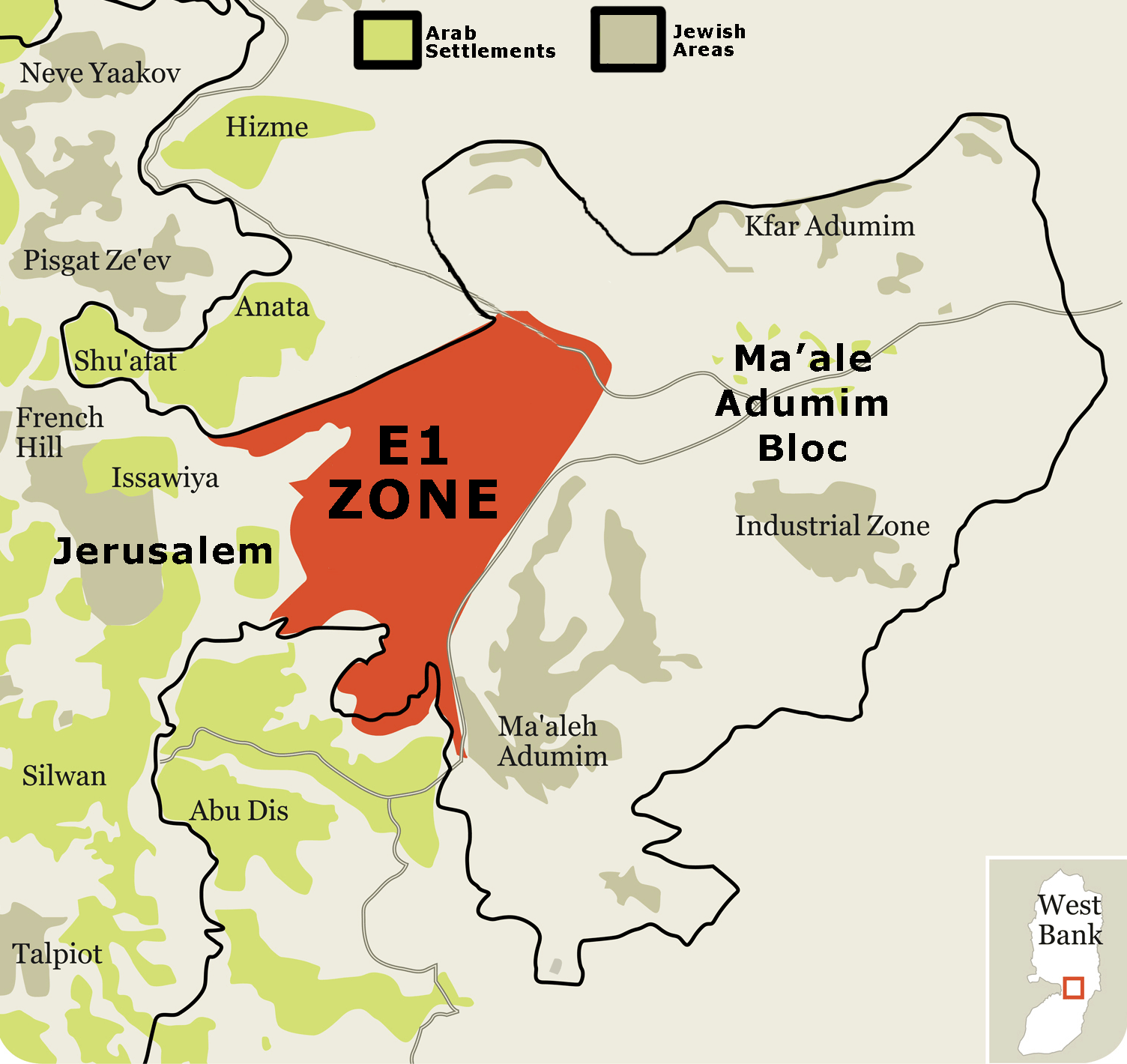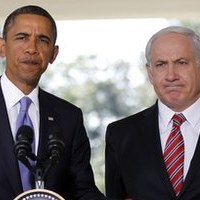![]()
RubinReports | By Barry Rubin

(source: JewishVirtualLibrary)
It must be a new year. The Washington Post has an editorial explaining that Israeli settlements are not the main problem in the Middle East.
The Post editorial is amazing since such sanity is so rare. It begins:
“Two mistaken but widely held notions regarding Israeli-Palestinian peace are that the settlements are the principal obstacle to a deal and that further construction will make a Palestinian state impossible.”
And then it continues by laying down a detailed, factual case that’s worth repeating:
- “Following the 1993 Oslo accords, Prime Minister Netanyahu’s government, like several before it, has limited building almost entirely to areas that both sides expect Israel to annex through territorial swaps in an eventual settlement….”
- Almost all of the Jewish settlers live on only four percent of the West Bank, the sector that Israel has been seeking to annex as part of a peace plan that was first presented twelve years ago.
- Israel’s latest construction, which will connect Maale Adumim — a short walk from Jerusalem — with the rest of the city is hardly the destruction of any chance for peace which has been portrayed in much of the Western media and by some Western governments. The worst-case scenario would be that if this corridor determined the ultimate border between two states, Palestinian motorists might have to take a detour of about ten minutes.
- Those who “are really interested in progress toward Palestinian statehood…will press [Palestinian Authority leader Mahmud] Abbas to stop using settlements as an excuse for intransigence — and cool their own overheated rhetoric.”
One of the questions I’m most often asked is about Israeli settlements. It is ridiculously easy to prove they are not the factor preventing Israel-Palestinian peace. I favor the eventual dismantlement of almost all of them — but only if and when there is a comprehensive peace which results in the annexation of some — that would be in Palestine’s territory. That is a long way off.
The problem with demonstrating that settlements are not the problem is that it is so hard to get those arguments to a big audience in the West. Many people also have a pre-1993 image of the situation in their minds.
Briefly, here are two points that make the case. The first shows that the claims about settlements are contrary to the facts; the second that they are contrary with logic.
First, the day after the Israel-PLO agreement was signed in 1993, Prime Minister Yitzhak Rabin made it clear that Israel’s interpretation was that it permitted continued construction on existing settlements. The Palestinian Authority did not object and that policy did not prevent it from negotiating over the next seven years. (Deliberate?) misrepresentations often make people think that Israel is establishing new settlements or expanding the size of existing ones. Both claims are untrue.
Second, if the Palestinian side wants an end to settlements that should be an incentive for reaching a peace agreement faster and thus getting rid of all settlements on the territory of the new state of Palestine. Notice that Israel — under Prime Minister Ariel Sharon no less — demolished all of the settlements in the Gaza Strip as, among other things, a sign of what could be gained by a peace deal.
Yet the Palestinian side has been in no hurry to make a deal. In theory, when it complains about settlements the response should be: So why don’t you compromise for peace and get rid of them rather than having them become “larger?”
But you don’t have to think this is a new idea. That was exactly what King Hussein of Jordan told the Palestine National Council, the PLO’s “legislative” body, on November 22, 1984. He explained:
“The years go by….The holy and cherished land is being swallowed up every day….How long shall we heed those among us who say: Leave it for future generations….? What makes them believe that the circumstances of future generations will be more conducive [when postponement is merely] giving the enemy more time….?”
In other words, your refusal to make peace makes things worse.
“We thus enabled the enemy to exploit time in order to change reality on the land of Palestine in its favor….Brothers and sisters, because we will be harmed the most as a result of the continuation of the present state of affairs….experience taught us to renounce immobility….”
Or, to put it bluntly, stop quarreling and using violence, and demanding too much and expecting to gain total victory that will wipe Israel off the map and just make a compromise two-state solution.
That was almost thirty years ago and the same points still apply! So let me summarize:
- Most of what is said about settlements in the West isn’t true.
- If you are really being so hurt by the existence and growth of settlements then make peace fast and get rid of them.
- If you don’t want to make peace fast and get rid of them then settlements aren’t your problem; Israel’s existence is.
And that means you have an unsolvable problem and someone will reprint the above column about thirty years from now.
 Barry Rubin is director of the Global Research in International Affairs (GLORIA) Center and editor of the Middle East Review of International Affairs (MERIA) Journal. His latest book, “Israel: An Introduction“, has just been published by Yale University Press. Other recent books include “The Israel-Arab Reader” (seventh edition), “The Long War for Freedom: The Arab Struggle for Democracy in the Middle East” (Wiley), and “The Truth About Syria” (Palgrave-Macmillan). The website of the GLORIA Center and of his blog, Rubin Reports. His original articles are published at PJMedia.
Barry Rubin is director of the Global Research in International Affairs (GLORIA) Center and editor of the Middle East Review of International Affairs (MERIA) Journal. His latest book, “Israel: An Introduction“, has just been published by Yale University Press. Other recent books include “The Israel-Arab Reader” (seventh edition), “The Long War for Freedom: The Arab Struggle for Democracy in the Middle East” (Wiley), and “The Truth About Syria” (Palgrave-Macmillan). The website of the GLORIA Center and of his blog, Rubin Reports. His original articles are published at PJMedia.



 RSS
RSS










Latest Comments
Hello Mike, Thank you for your positive feedback to the article. I felt there wasn’t too much critical analysis of ...
Thanks for this considered and well constructed article. A follow up article on the manner in which the editorial contro...
THE CLUELESSNESS OF CLAIMING THAT OBAMA'S MIDDLE EAST POLICIES WERE A FAILURE CANNOT BE FURTHER FROM THE TRUTH, WHAT THE...
As long as Obama is the president of the usa do not trust the us government......
Thank you for an good read....